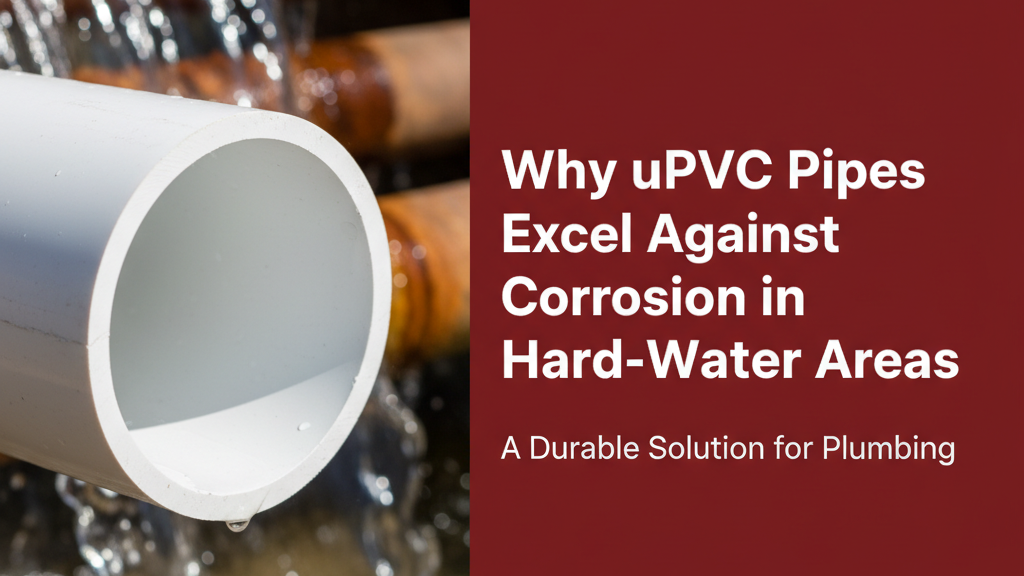Understanding Corrosion Challenges in Hard-Water Areas
Hard water affects approximately 25% of Indian households with mineral-rich groundwater supplies. While harmless for consumption, its high calcium and magnesium content creates persistent challenges for plumbing systems.
How Hard Water Accelerates Pipe Corrosion
Two primary mechanisms degrade pipes in hard water conditions:
- Electrochemical corrosion in metal pipes where dissolved minerals act as electrolytes, forming corrosive galvanic cells
- Scale accumulation in all pipe types, gradually constricting water flow (1.5mm of scale reduces diameter by up to 15%)
The Science Behind uPVC’s Corrosion Resistance
Unplasticised Polyvinyl Chloride (uPVC) owes its resilience to engineered material properties absent in traditional piping.
Chemical Composition of uPVC Pipes
uPVC differs from standard PVC through:
| Component | Role in Corrosion Resistance |
|---|---|
| Zero plasticisers | Eliminates softening agents that degrade over time |
| Calcium carbonate fillers | Neutralises acidic compounds in water |
| UV stabilisers | Protects from sunlight degradation in exterior installations |
How uPVC Withstands Mineral Deposits
- Smooth bore surface (0.007mm roughness) discourages mineral adhesion
- Non-conductive material prevents electrochemical reactions
- Hydrolysis resistance maintains integrity in pH levels from 2-12
Comparing uPVC to Traditional Piping Materials
uPVC vs Metal Pipes in Hard Water
GI pipes in hard water typically show:
- Visible rust within 18-24 months
- 70% higher frictional losses from scaling versus uPVC
- 3-5x shorter functional lifespan in areas exceeding 300ppm hardness
uPVC vs Other Plastic Pipes: Longevity Showdown
| Material | Avg. Lifespan in Hard Water | Scale Adhesion Rate |
|---|---|---|
| uPVC | 50+ years | Lowest |
| CPVC | 30-40 years | Moderate |
| PPR | 25-35 years | High |
Benefits of Choosing uPVC Pipes for Hard-Water Areas
- Zero corrosion guarantees with proper installation (ISI 4985 compliant fittings recommended)
- Flow efficiency retention of 90-95% after decades versus 60-70% for scaled metal pipes
- Shock resistance during water hammer events (withstands 6-8 bar surges)
Installation and Maintenance Tips for Optimal Performance
Preventing Scale Buildup in uPVC Systems
While uPVC resists scaling, these practices maximise performance:
- Install 100-150mm before metal connections to isolate electrolytic effects
- Use standard pipe cleaning balls annually for pipes below 63mm diameter
- Flush systems monthly if TDS exceeds 500ppm
Frequently Asked Questions
Can hard water cause uPVC pipes to become brittle?
Quality uPVC maintains flexibility between -10°C to 60°C; embrittlement only occurs with prolonged UV exposure or substandard formulations.
Do uPVC pipes affect water taste in hard water areas?
Unlike metal pipes, uPVC doesn’t leach ions or react with minerals, maintaining neutral taste profiles.
How does uPVC perform with borewell water high in iron?
The material resists ferrous deposits better than metal pipes, but installing a sediment filter pre-storage tank is advisable for water exceeding 0.3ppm iron.

